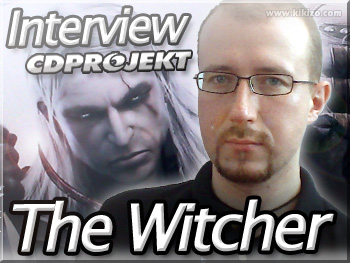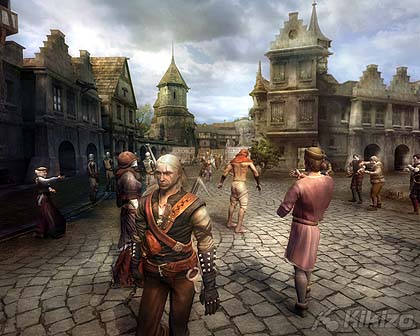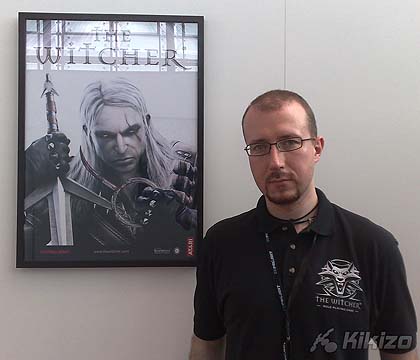The Witcher: CD Projekt Interview
The Polish developer is bringing author Andrzej Sapkowski's fantasy world to life - and wants to change the way you look at PC RPGs in the process.
Page: 1 2
By Sharan Dev Jain & Alex Wollenschlaeger
Polish economist-turned-writer Andrzej Sapkowski has been weaving fantastic tales in his Witcher universe for more than 20 years, a span of time that has seen his short stories and novels translated into nearly a dozen languages. His most recent book, The Last Wish, marked his debut in the English language earlier this year, but it's the next translation, to the language of games, that could be the biggest leap yet.

The Witcher is an RPG for PC from Polish creator CD Projekt. On first glance, the game and the universe it comes from would seem to borrow heavily from the works of J.R.R. Tolkien, but the defining aspect, the moral ambiguity that permeates both the page and the game, is what sets it apart.
The team has described The Witcher as more adult and less fairy-tale than the humdrum fantasy that fills the racks in the genre corner of the bookstore. The decisions faced by the characters in the books and the game are not the abstract, black-and-white problems so common in fiction but more along the lines of the dilemmas we're faced with every day, questions without a clear answer, where the line between good and evil is very much blurred.
The questions to be answered are complex too. "The main problems in this world are the same problems as we have now," says Michal Madej, lead designer on the game at CD Projekt. "The main problem is racism, another one is terrorism, and ecology and genetic manipulation of human beings."
Apart from the world itself, the biggest single reason behind CD Projekt's revolutionary attitude is leading man Geralt of Rivia. Geralt is a Witcher, a swordmaster and professional monster slayer with powers that stretch the imagination and the mutated DNA to match. "He's not your typical hero," says Madej. He and his team, based in Warsaw, have spent the last five years working on a game they hope will bring not only the spirit of Sapkowski to PC gamers but also change how they think about role-playing games.
Perhaps the biggest change is the team's approach to story. Many developers love to talk about how story is central to their games, but with The Witcher, the team is trying to expand the language in which story is told. Decisions will have very real repercussions in the world, but unlike many other games in the genre, you'll not realize the full extent of your actions until much later, sometimes more than a dozen hours further into the game. What this does, says Madej, is take away that incentive to try to cheat the system to make sure you end up with the best result in any particular interaction.
Page: 1 2







 Satoru Iwata Video Interview - the late Nintendo president spoke with Kikizo in 2004 as 'Nintendo Revolution' loomed.
Satoru Iwata Video Interview - the late Nintendo president spoke with Kikizo in 2004 as 'Nintendo Revolution' loomed. Kaz Hirai Video Interview - the first of Kikizo's interviews with the man who went on to become global head of Sony.
Kaz Hirai Video Interview - the first of Kikizo's interviews with the man who went on to become global head of Sony. Ed Fries Video Interview - one of Xbox's founders discusses an epic journey from Excel to Xbox.
Ed Fries Video Interview - one of Xbox's founders discusses an epic journey from Excel to Xbox. Yu Suzuki, the Kikizo Interview - we spend time with one of gaming's most revered creators.
Yu Suzuki, the Kikizo Interview - we spend time with one of gaming's most revered creators. Tetris - The Making of an Icon: Alexey Pajitnov and Henk Rogers reveal the fascinating story behind Tetris
Tetris - The Making of an Icon: Alexey Pajitnov and Henk Rogers reveal the fascinating story behind Tetris Rare founders, Chris and Tim Stamper - their only interview? Genuinely 'rare' sit down with founders of the legendary studio.
Rare founders, Chris and Tim Stamper - their only interview? Genuinely 'rare' sit down with founders of the legendary studio. The History of First-Person Shooters - a retrospective, from Maze War to Modern Warfare
The History of First-Person Shooters - a retrospective, from Maze War to Modern Warfare